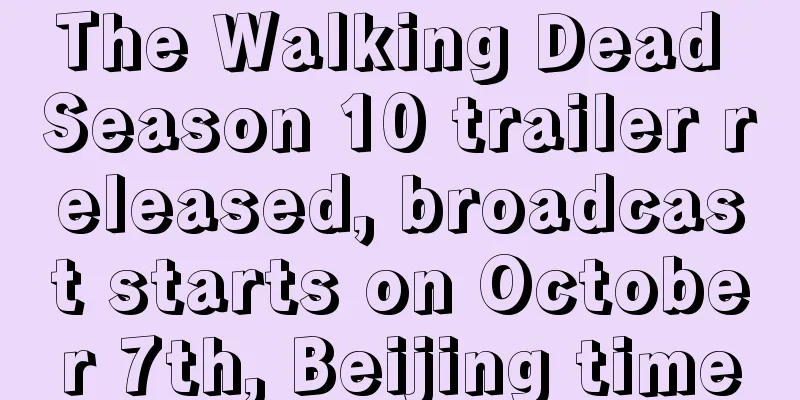How long has it been since you watched a video at normal speed? Is it because the content is bad or are you just impatient?

|
Now is the era of fast food, and people have a variety of ways to obtain information, including text, video, etc. So the question is, how long has it been since you watched a video at a normal speed? Now the People's Daily has published an article, asking everyone how long it has been since you watched a video at normal speed? According to the 2021 China Internet Audiovisual Development Research Report, 28.2% of online video users do not watch video programs at the original speed, and nearly 40% of the post-00s group choose to watch at double speed. Objectively speaking, the choice of watching dramas at double speed reflects the progress of technology. Subjectively speaking, why choose double speed? People who are in a hurry and value efficiency can achieve efficient "watching" dramas as they wish, only watching the essentials, saving their increasingly precious personal time; and people who don't like certain clips don't have to give up the drama, but just quickly skip certain scenes. From this perspective, whether or not the video is watched at double the speed, and how many times it is watched, has, to a certain extent, become a touchstone for evaluating the quality of film and television works. Good TV dramas are worth watching at the original speed, and can even be watched repeatedly. However, some dramas are full of boring plots that are padded and dragged out, as well as various advertisements that are constantly inserted and implanted, and are only worthy of being watched at double the speed to kill time. Does the double-speed playback mean disrespect for content creation? There has been a lot of discussion about this topic at home and abroad. Supporters believe that the double-speed function changes the way film and television works are presented, which will cause fatal damage to film and television art, while opponents complain that "there are so many bad dramas that 4x speed is not enough" and "feeding garbage to the audience and asking them to chew it slowly." Putting aside the emotional color, these debates undoubtedly show the reality that the speed-up function has changed people's viewing behavior and even changed the relationship between people and film and television works. At present, some platforms and creators have noticed this trend and taken action to make useful attempts to win back the "playing speed". According to reports, a total of 39 domestic dramas with 1,271 episodes were released in the first quarter of 2021, with an average of only 32.6 episodes, a record low in many years. In a sense, the continuous "slimming down" of the number of episodes may also be a new trend of "going under pressure" on the long video content production side. There is also a voice of concern that double-speed playback exacerbates "time anxiety" and impetuous mentality, and that this double-speed habit will spill over from viewing behavior to "double-speed life." This kind of warning voice is necessary, but we cannot simply evaluate the choice of double-speed playback as black and white, good or bad, nor do we need to over-exaggerate its possible impact. You can pursue efficiency and immerse yourself in pleasure, or you can reserve a slow space for creation and a slow speed for aesthetics. Make your own choices and share beauty. You can still reap wonderful results at any speed. |
Recommend
Hideo Kojima: Death Stranding movie is more than just a game adaptation
Earlier, Kojima Studios and film production compa...
Miss me? Harley Quinn's look in Birds of Prey revealed
Recently, Margot Robbie, who plays Harley Quinn i...
IGN's final rating for the first season of "The Mandalorian" is 8 points: Everyone's dream Star Wars drama
The first season of the "Star Wars" spi...
"Crayon Shin-chan: Great Adventure in Henderland" movie review: What's the appeal of the fourth installment in the series?
Review and details of the movie "Crayon Shin...
Theatrical version of "One Piece: STAMPEDE" Hong Kong version Chinese trailer all members will gather on August 22
At the end of last year (2018), to commemorate th...
The appeal and evaluation of "Durarara!!x2 Shou": The depth of the story and characters
Durarara!! x2 Shou - Chaotic Ikebukuro catches fi...
The TV series "Chinese Paladin 4" has a shorter episode count: 40 episodes changed to 36 episodes
Recently, the Youth Work Committee issued a notic...
This may be the reason why "Venom" has low reputation and high box office
Looking back at the global movie box office marke...
Disney makes "strategic changes" and may delete more movies and TV shows from streaming media
The Walt Disney Company is reviewing more of its ...
Guardians of the Galaxy Vol. 3 production put on hold, new director not found yet
According to The Hollywood Reporter (THR), Guardi...
Detective Conan Shonen Sunday Special DVD "KID in TRAP ISLAND" Review: What is the appeal of Magic Kaito Series OVA #5?
Detailed review and recommendation of Detective C...
The new Chinese trailer of the movie "SpongeBob SquarePants: Rescue Adventure" protects SpongeBob
Recently, the "World Oceans Day" Chines...
The appeal and reviews of "Salty Ray": A moving story and deep characters
"Salty Ray": A story of a girl torn bet...
The appeal and evaluation of Voice Actors Sentai Voicestorm 7: Heroes who captivate with the power of their voices
Voice Actors Squadron Voicestorm 7 - A battle bet...
Gundam manga artist Yoshikazu Yasuhiko is still writing at the age of 70 while preparing for the final series
According to Japanese media reports on June 2, th...









